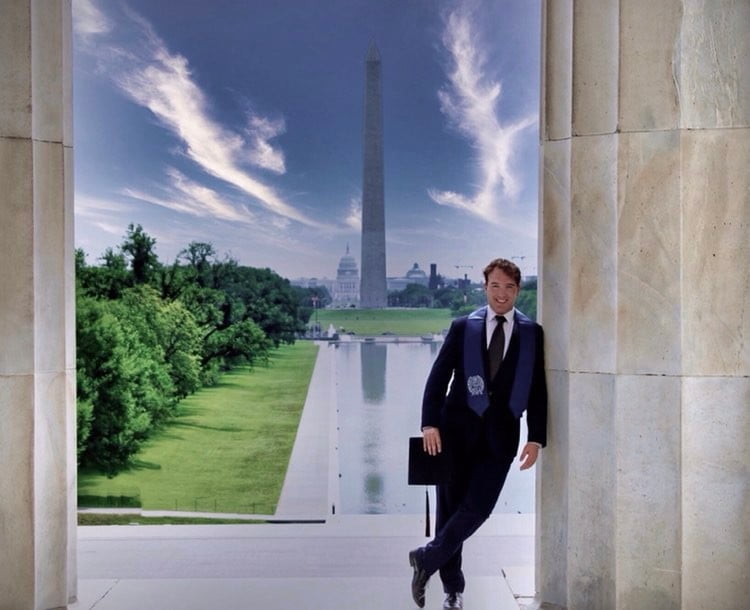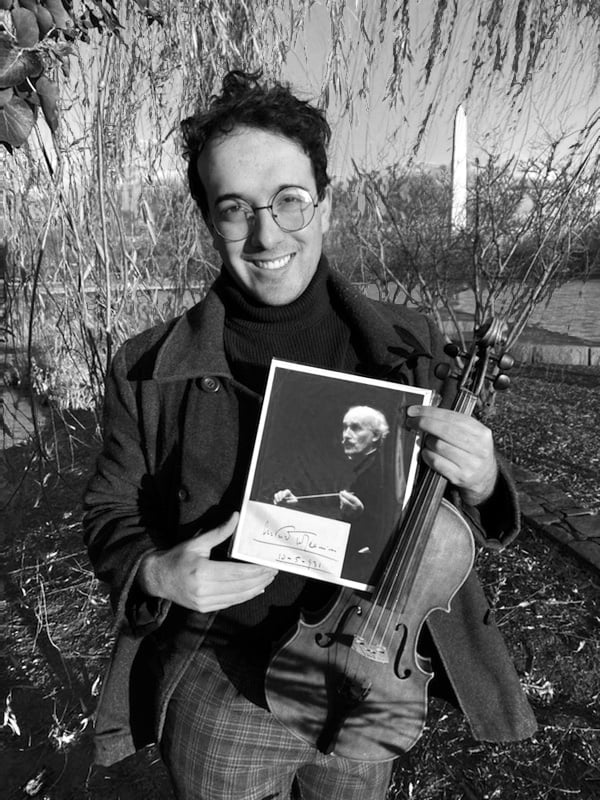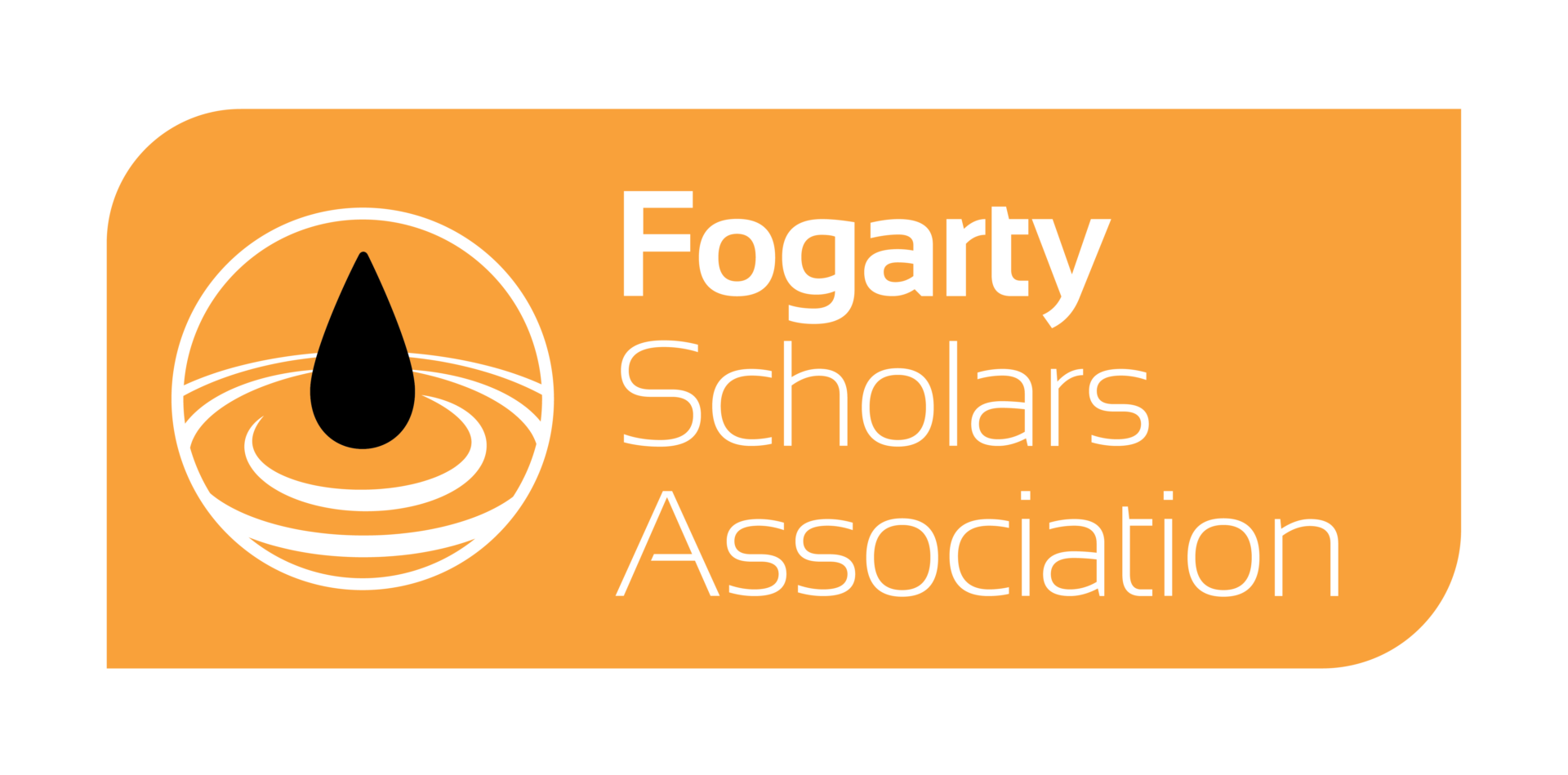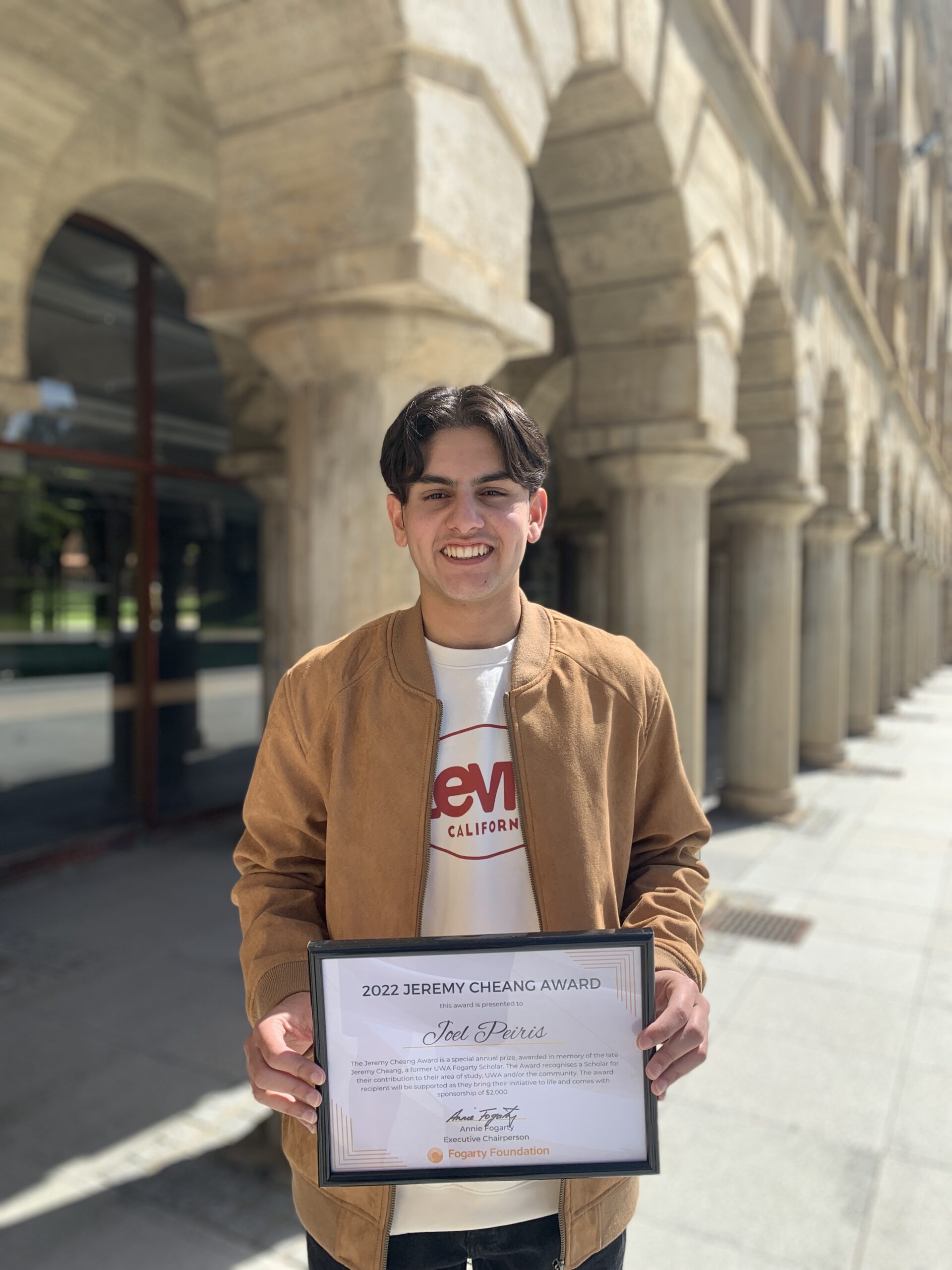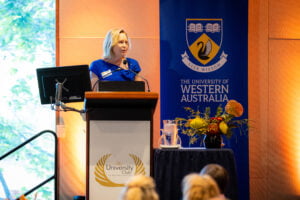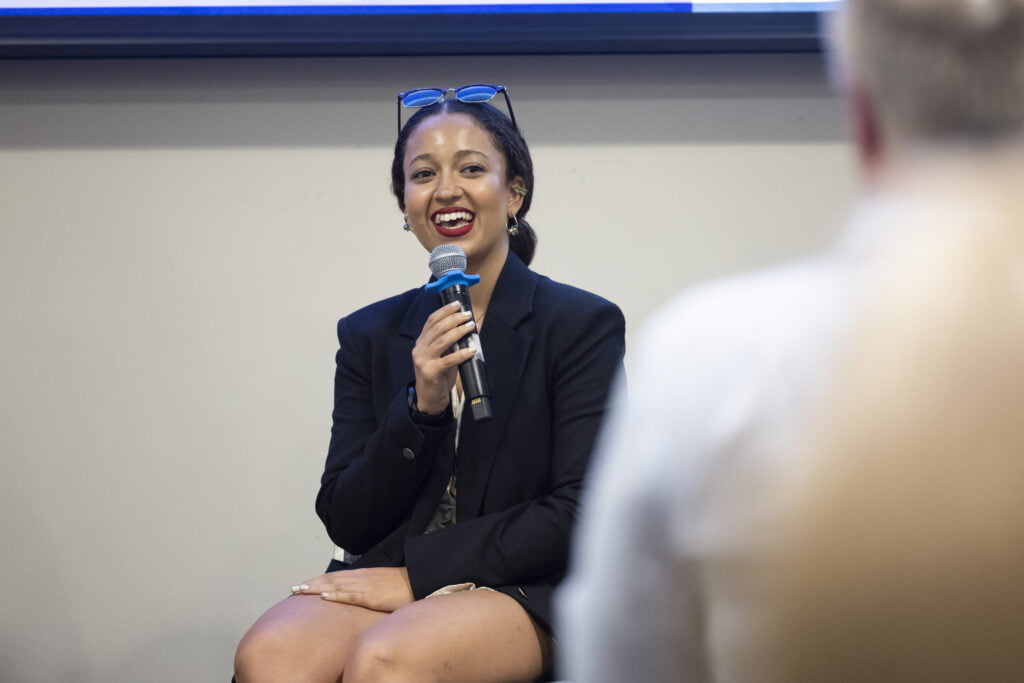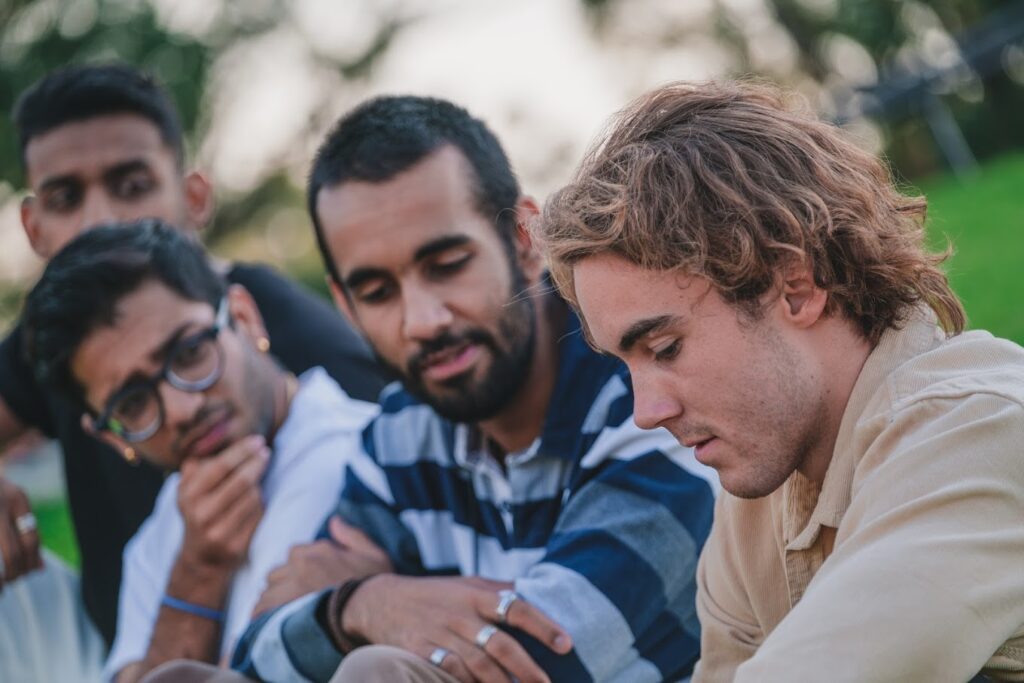A letter from Joshua Dunne

Joshua Dunne joined the UWA Fogarty Scholarship Program in 2015, studying a Bachelor of Philosophy (Honours). During his studies at UWA, Josh was passionate about his education and development, making the most of every opportunity. Awarded a Fulbright Scholarship in 2018, Josh moved to Washington DC where he completed a Master of Security at Georgetown University.
Since his return, Josh has once again shown his dedication to leadership development, as well as his ability to positively influence those around him, joining us as a facilitator at this year’s Fogarty Futures Conference and InspirED. Read Josh’s inspiring letter to our UWA Fogarty Scholars.
An Open Letter to UWA Fogarty Scholars
Like every student lucky enough to benefit from the Fogarty Foundation’s extraordinary generosity, I vividly remember the feeling of my post-WACE summer bliss being interrupted by a phone call that, though brief in length, had a profound impact on my identity. Like so many others before and since, a one-minute conversation rewrote the subtitle following my name so indelibly that – thanks to four years’ worth of events – I’m sure I have enough “Joshua Dunne, Fogarty Scholar” labels, lanyards and badges to wallpaper my bedroom.
I am fortunate to be able to reflect upon that summer’s phone call far too frequently. How fortunate am I then, to have been able to re-live the experience when a caller I thought was a telemarketer from the eastern states introduced herself as a representative of the Australian-American Fulbright Commission, informing me that my application for a Fulbright Scholarship to support my pursuit of a Master’s degree in the USA had been successful?
While separated in time, these two phone calls were anything but disconnected. My Fogarty Scholarship not only featured prominently in the written and interview portions of my Fulbright application, my four years spent engaging with and learning from the extraordinary community of scholars, professors, mentors and friends of which I was so privileged to be a member gave me a vision for my future studies that was simply non-existent prior to my time at UWA and would likely have remained so were it not for my connection with Fogarty. As much as I loathe the cliché, my Fogarty Scholarship was an education and an inspiration, two impacts that gave me the foundation from which to launch my journey to Washington DC to study at Georgetown University’s hallowed Edmund A. Walsh School of Foreign Service.
I would like to take this opportunity to share some thoughts that I hope might be of value to current and future scholars considering postgraduate study abroad, particularly in the United States. I am always hesitant to give advice to Fogarty Scholars, a group of students that have far more to teach me than I can possibly provide in the reverse, but if only by helping you avoid the mistakes I made in my postgraduate journey, I hope the following insights serve to guide you around what I see as potentially dangerous pitfalls on your path ahead.
First, there is no substitute for vision. No grade, no award, no character attribute nor any of the many skills you have surely accumulated will help you if, like a ship without a navigator, you find yourself outside Winthrop Hall, posing for posterity and Instagram in your cap, hood and gown without the faintest idea of what comes next – “all dressed up with nowhere to go”. Your vision need not come with a defined salary, location or job description. It need not be revolutionary or radical, or mirror the experience of your heroes or role models. It need not even be particularly specific. It must, however, be genuine. An authentic response to questions such as “what do I value?”, “what am I good at?” and “how can I help?” can provide you with the seed of an idea that might guide your future prospects. Take the time to develop those ideas – the more the better – and don’t be afraid to see where they lead.
Second, don’t underestimate the value of the ‘little skills’ that you’ve accumulated over the course of your secondary and tertiary education. At Georgetown, a 230-year-old Jesuit institution with some of the most rigorous academic standards you can imagine, I was surrounded by an extraordinary cohort of postgraduate students with what felt like an endless supply of original ideas, incredible ability and tireless work ethics. Inevitably however, what impeded them was not a lack of discipline or intellect, but low-level issues surrounding those skills that didn’t feature on their resumés. The ability to condense the thesis of a novel or paper into a half-page of well-constructed notes. The willingness to speak publicly or ask a concise, relevant question of an intimidating professor without anxiety or waffle. The expertise to find, cite and source two or more pieces of evidence that are in conflict, justify their disparity, and employ them convincingly in support of a broader argument. You wouldn’t expect to excel at a sport or a musical instrument without training, but too many students think they can succeed academically or professionally based on intellect or willpower alone. Take advantage of the opportunities you are given to practice these skills regularly and master them gradually – your postgraduate self will thank you.
Finally, be curious. I applied for Fulbright because I didn’t feel like I could study the world around me without experiencing it firsthand. In 2021, as legitimate questions are being asked of the ability of mainstream and social media alike to paint an unbiased image of our world and those of us inhabiting it, it is more important than ever to use your own judgement to identify the best opportunities to grow, learn and make an impact. Despite the effects of the pandemic, my two years in the USA saw me travel across much of the country: from Connecticut to Washington, Chicago to Nashville, Gettysburg to the Alamo. The predominant lesson I took away wasn’t any pearl of cultural wisdom that gives me an insight into the ‘essence of America’. Instead, it was how poorly Americans fit into any of the preconceived categories with which I was familiar. While it’s easy to label Southerners as rednecks, Northerners as uptight and everyone west of the Rockies a hippy, reality simply doesn’t conform to such lazy generalizations. To quote one of my favourite social scientists, “what lies at the core of our discipline is to realize that there exists as much, if not more diversity within any statistically relevant group as exists between them”. Embrace these differences – personally, professionally and academically – they make all three more fun.
To learn is to explore, and there are few better opportunities for exploration than those provided by Fulbright and prestigious international scholarships like it. If you had told me when I boarded my flight to the USA that the next two years would feature a once-in-a-century global pandemic, nation-wide riots and a violent election aftermath that saw an incensed mob form just beyond the doorstep of my DC apartment and launch a political assault on the seat of American democracy, not to mention a fair share of frustration, loneliness and personal tragedy, there’s a good chance I may have stayed home. However, to explore is to take risks and, despite the confluence of all of the above, I never once felt I stood to lose more by my Fulbright experience than the enormity of what I gained.
For those of you considering a similar postgraduate path, please don’t feel that you must do so alone. My high expectations of Fogarty Scholars have already been met by the members of the current crop who I encountered at this year’s Futures, but our abilities as individuals are inevitably outmatched by our collective wisdom as a community. Be true to your vision, develop your skillset and keep an open mind and you’ll be sure to navigate your application to an experience that will leave you profoundly richer for having had it.
My email is joshua@ajdunne.com. As always, let me know if I can help.
Best wishes,
Josh
